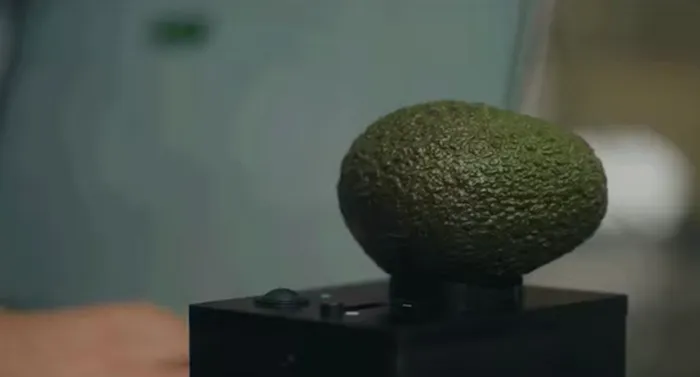
If you walk into a grocery store and covertly watch people shopping for avocados, you’ll see the same thing happen repeatedly: People pick up an avocado, squeeze it, put it back, and then do it again with two or three others. It’s not great for the avocados—when someone eventually takes them home, they’re more likely to be bruised and potentially wasted—and it’s still hard to tell whether a particular fruit is ready for making guacamole.

A new “avocado scanner” for the produce aisle, from a company called Apeel, is designed to give a more accurate answer. Place an avocado on the machine, and it shines a beam of light through the skin of the fruit, using a sensor to measure how that light reflects and then using machine learning—based on data from tens of thousands of avocados—to calculate when the avocado will be ready to eat. On a display, the machine tells consumers if a particular fruit is ready to eat today or in 3 to 4 days. Stores can also use a simpler version of the tech as they’re building displays, so signs could quickly point shoppers to produce at the right stage of ripeness. (The company’s research suggests that nearly half of shoppers would buy more avocados if they knew they’d stay ripe longer.) In the supply chain, distributors can use it to help send the ripest avocados to the closest stores.

Apeel, a company with a mission to reduce food waste—which previously designed a plant-based coating for produce to help it last longer—first started working with the technology internally before developing the new scanners. “In the process of developing our shelf-life extension technologies, we’ve had to develop our own tools that allow us to measure produce quality and predict longevity,” says founder and CEO James Rogers. The coating that the company makes can give fruit and vegetables extra days before it has to be thrown out, but the scanner can help make it clear exactly how much time is left.
The technology is already being used in equipment to sort produce for distributors, and the company is now launching the smaller scanner. While distributors sometimes used other methods to check ripeness in the past, they didn’t work particularly well—one common test involves poking fruit with a needle to see how hard it is, something that damages the fruit and can’t help predict how many days an avocado has left before it ends up in the compost bin.
As avocados keep getting more popular—including in places nowhere near where they’re grown, making it even more important to be able to calculate when they’ll be ripe—the tech can help cut waste. Lots of produce is similarly wasted in enormous volumes (in total in the U.S., food waste throughout the supply chain costs an estimated $218 billion), and the company plans to develop versions of the technology for other fruits and vegetables. “We think that this is the path to zero waste,” says Rogers.
ABOUT THE AUTHOR
Adele Peters is a staff writer at Fast Company who focuses on solutions to some of the world's largest problems, from climate change to homelessness. Previously, she worked with GOOD, BioLite, and the Sustainable Products and Solutions program at UC Berkeley.
